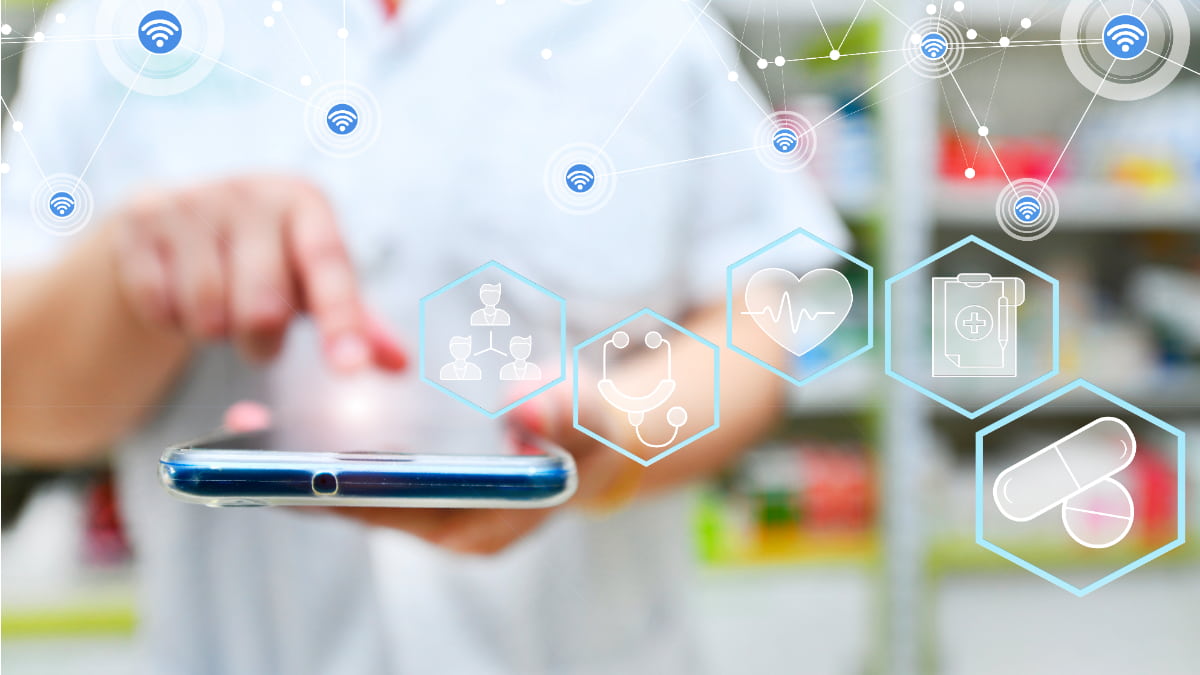How Mobile Apps Increase Access to Critical Healthcare
To address challenges in critical healthcare, the industry has taken advantage of mobile platforms, revolutionizing both the quality and accessibility of healthcare.

The United States has been a leading provider of healthcare and medical services for decades. With some of the top hospitals and highest-ranking physicians in the world, it would appear that citizens would have no issue accessing critical health services. Yet, despite the advancements in the medical world, healthcare remained a challenge for many due to accessibility, convenience, and inequalities within the sector. In more recent years, to improve these challenges, the industry has taken advantage of mobile platforms and transformed the way we access healthcare and the quality of service. Now, mobile healthcare is projected to grow to a 100 Billion dollar industry by 2030 and continues to improve wellness and quality healthcare around the world.
How Do Mobile Apps Provide Critical Healthcare?
More than 200 healthcare apps are added each day, and these apps range in terms of services and treatments. There are mobile apps specifically for mental health, traditional hospital care, primary care, physical care, and other health needs. Similar to a traditional setting, mobile healthcare apps can be used for health appointments, consultations, diagnostic services, therapy, and medication distribution. For in-depth mobile app services, communication with physicians is typically held over video or chat services, but mobile platforms can also improve the scheduling and maintenance of in-person appointments through patient portals.
Other innovative healthcare mobile apps can help patients track their health data using smart devices and mobile tracking, to easily provide real-time data to medical teams. This accessibility was extremely limited prior to mobile platforms, and now more than 50% of users prefer mobile care to traditional care the advancements in technology and patient wellness improvement.
Benefits of Mobile Apps for Healthcare
Mobile apps improve every aspect of healthcare for those who lacked proper access to standard healthcare services. Some of the benefits of mobile platforms for healthcare include:
Improved Communication
In a standard healthcare setting, patients typically schedule appointments, update their medical records, and inquire about health concerns over the phone or in person. In a healthcare setting with hundreds or thousands of patients, this means coordinating a lot of information manually, which can easily lead to mistakes or delayed responses for patients. Mobile platforms streamline the process and allow patients and doctors to securely communicate within the mobile app, avoiding delays or missed communications. Mobile apps can also alert parties for medication refills, overdue appointments, and even billing. Digital platforms improve the quality of communication and save hours of manual work, allowing more time for staff to focus on critical care.
Emergency Care
Mobile apps can help patients and doctors better handle emergency situations and care. If a patient is in need of a last-minute appointment, mobile apps quickly allow for a video appointment to address the situation much faster than a traditional doctor's visit and provide the next steps for patients in need.
Emergency services have also used mobile apps to decrease congestion at their location. Mobile apps can provide wait times for their unit, as well as others in the area, encouraging patients to visit the locations with the shortest wait time and avoiding overcrowding.
Other innovative emergency healthcare apps have developed technology to provide real-time assistance through a digital platform, such as CPR instructions, smart symptom detection, and AI medical advice. All of these capabilities have greatly improved the quality of emergency medical services.
Improved Mental Healthcare
Mental health is a critical aspect of well-being and affects all other aspects of health. Unfortunately, mental healthcare has historically been considered one of the least accessible, due to the high cost, lack of insurance coverage, and difficulty finding providers. People surveyed on mental healthcare report that the biggest roadblock to quality mental healthcare has been convenience. Most people can’t afford to time off of work for an appointment or pay the high co-pays for each appointment.
Mental healthcare has drastically improved with mobile platforms and is one of the most successful mobile industries today. Not only can patients secure appointments with qualified mental health care providers from the comfort of their homes, but the appointments themselves are much more affordable due to the emergence of telehealth. Aside from traditional therapy and psychotherapy, dozens of mobile apps provide alternative treatments like meditation, relaxation, stress management, addiction treatment, sleep improvement, and mood tracking. These preventative measures can help patients improve their wellbeing, and reduce the likelihood of a mental health emergency from occurring.
Mobile Apps Can Improve Your Healthcare Business
Mobile apps can improve the operations and quality of your healthcare services. With emerging technologies like artificial intelligence, augmented reality, blockchain, and analytics, the possibilities for improvement in care are endless. Now more than ever, accessibility is key to growing your business and providing quality services, and the key is through digital platforms. Giving patients the ability to access healthcare at any time, anywhere, will ensure their wellness is always a priority.
Develop Your Healthcare App with Invemo LLC
If you’re ready to take your business to the next level, Invemo LLC can help design and develop a quality mobile app in record time. We have over 10 years of experience with mobile app development and can implement the latest trends and advancements to make your mobile app a true asset in your business. For more information on our services, contact us.
